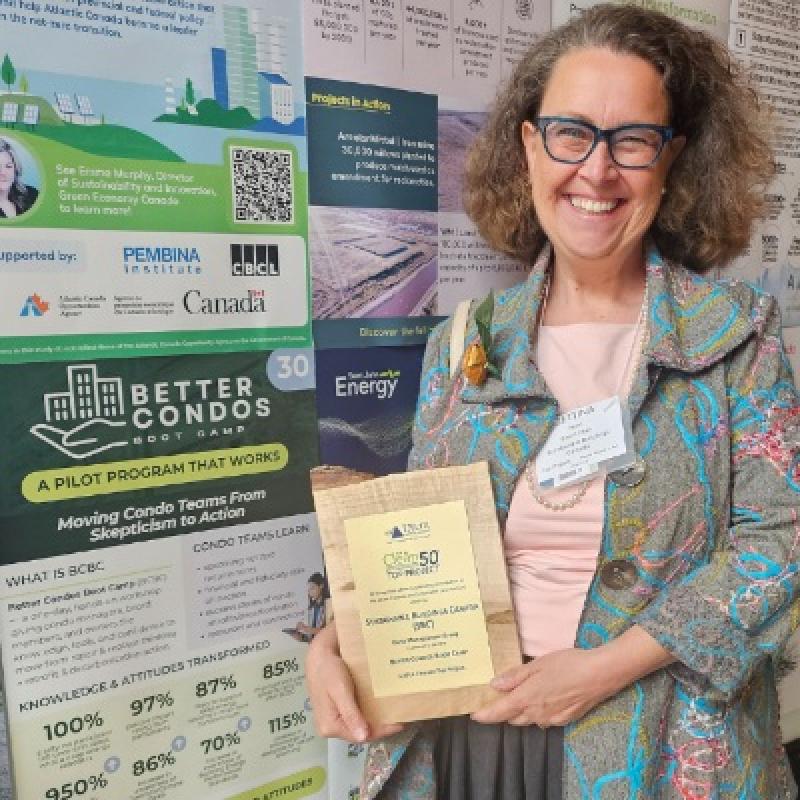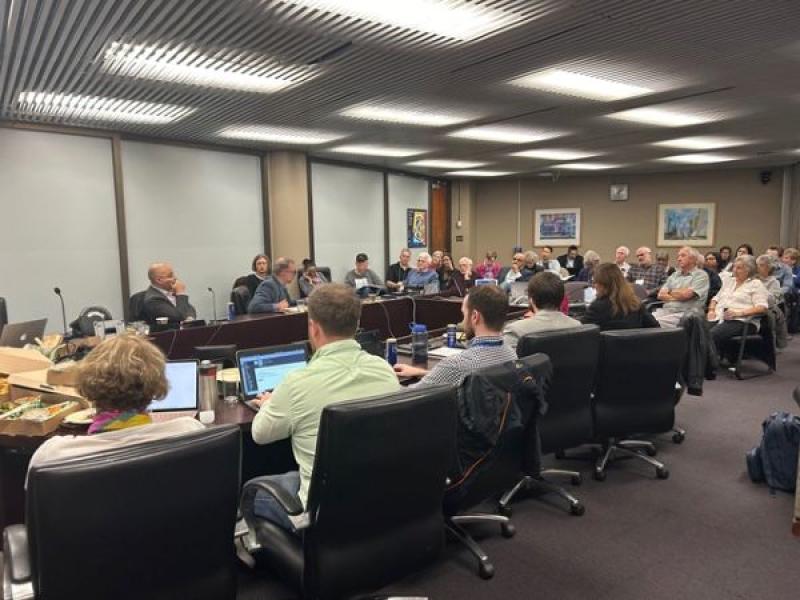
A program offered by Sustainable Buildings Canada that educates condo board members about the value of deep energy retrofits has been recognized by Canada’s Clean50 for its success in promoting the importance of climate action.
Named the Better Condos Boot Camp, the initiative's aim is to have boards, property managers and residents support the decarbonization of condo buildings through energy efficiency measures. The Toronto-based non-profit looks to address concerns about costs and structural obstacles, such as high vote thresholds to permit upgrades.
Across three one-day workshops in Toronto held during the fall of 2024, Sustainable Buildings Canada and its partners informed 67 participants from 21 buildings about the risks of falling behind on building regulations and the fiduciary duty of working toward net-zero.
“We gave them a quick 101 in how to look at a building holistically and looking forward, not backward,” Bettina Hoar, the chair of Sustainable Buildings Canada, said in an interview with Sustainable Biz Canada.
Most of the people who attended the pilot program left convinced, Sustainable Buildings Canada said. Almost nine in 10 (87 per cent) said they were likely or very likely to support a deep energy retrofit.
The Better Condos Boot Camp was chosen as a 2026 top project by Canada’s Clean50, an organization that recognizes the country’s sustainability sector. It is “a testament to the power of collaboration,” Brynn Nheiley, executive director of Sustainable Buildings Canada, said in a release.
Countering the 'risk in inaction'
The creation of the Better Condos Boot Camp was inspired by Hoar's experience with her own condo board. She saw first-hand how major decisions — in this case, replacing the building's windows — were voted on by board members who have differing interests and may lack expertise in the built environment. Changing course mid-project was also a problem.
As board members are often taught to be financially conservative when deploying a condo’s reserve fund, investments that go beyond what building codes prescribe are rarely supported, Hoar said. It presents an obstacle when deep energy retrofits such as highly energy-efficient windows and insulation exceed regulations.
Another barrier comes from laws and regulations that hinder the ability for motivated condo boards to quickly enact the upgrades. Drawing upon research by Yazan Zamel, the president of the Sustainable Engineers Association, Sustainable Buildings Canada identified high voting thresholds, restrictive reserve fund rules, and legal ambiguities under Ontario’s Condominium Act.
To overcome these deterrents, Sustainable Buildings Canada oriented the Better Condos Boot Camp to “explain to people that there is a risk in inaction,” Hoar said.
“If they don’t start thinking today about the requirements that will be hitting buildings both from changed regulations and changed climate, they will be behind the 8-ball.”
Over half of Toronto's greenhouse gas emissions come from buildings, according to the latest emissions inventory that covers 2022, with condos and other multi-unit residential buildings being major contributors.
Persuading participants

For each session of the boot camp, the non-profit assembled the key figures who control the purse strings of a condo. It explained how rolling out retrofits now can help the board meet its fiduciary duty and better prepare for upcoming climate and regulatory changes, such as the City of Toronto’s 2040 net-zero target for buildings.
Failure to act now could mean higher costs, reduced property values and problems with insuring the condo, Sustainable Buildings Canada warned the attendees.
To close each workshop, Sustainable Buildings Canada provided examples of boards that have implemented or are planning retrofits, and provided participants with concrete steps forward.
Called a “huge success” by Hoar, she said many people overcame their skepticism, and left believing retrofits are important. Of the 67 participants, none left with negative feelings about deep energy retrofits, while 97 per cent believed it is a positive step, according to Sustainable Buildings Canada.
Moving the boot camp beyond Toronto
Starting with just 21 condos, Hoar’s ambition is for the Better Condos Boot Camp to educate every condo board in the city and include more representatives of condos per session. She hopes to host more events and hold sessions outside of Toronto.
Hoar also envisions it will go beyond condos to other kinds of residential buildings such as co-operatives and apartments.
Her dream is that within the next two years, “there isn’t a single condo owner, board member, or property manager that doesn’t have the desperate need and understanding that they are moving towards decarbonizing their building.”










